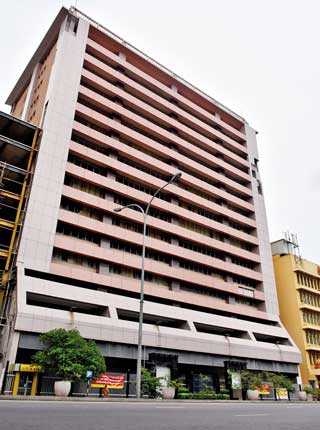Tuesday Feb 17, 2026
Tuesday Feb 17, 2026
Tuesday, 31 December 2019 00:24 - - {{hitsCtrl.values.hits}}
By Dr. Sirimewan Dharmaratne
Out of all recent tax reforms, probably the most contentious is the abolition of PAYE. PAYE is the most ubiquitous tax regime in world due to several salient features. From the taxpayer’s perspective it takes away the responsibly of calculating the correct amount of tax and place it on the Inland Revenue (IR).
The taxpayer has the benefit of knowing the disposable income once the dues to the State are paid. For the Government, automation of this process significantly reduces the administration cost. The Government is able to have an accurate estimate of the income tax revenue and forecasting income tax receipts becomes that much easier.
 |
| It is easy to see how the self-declaration or self-assessment would lead to pervasive tax evasion. Taxation has public good characteristics. People are more likely to pay the correct amount only if they are confident that others do the same. PAYE takes this doubt out of their minds |
Admin burden
Admin burden is the cost placed on the taxpayer as well as the IR to pay or collect a tax. With a well-established PAYE system, there is no additional cost to the Government or the taxpayer each year to pay or collect income tax.
Abolishing such a tax regime and placing the burden on the taxpayer to file a return, as well as for the IR to check and verify such returns, would cause a significant increase in administration cost. The IR offices would have to ascertain, probably in collusion with the employers, whether the reported income is correct.
Then there is the additional cost of dealing with different types of payments, defaults, late payments, disputes and scores of other issues that are associated with tax collection through a return. Additional intricacies will arise from vacillations in income due to bonuses, gratuities, etc. Such idiosyncrasies does not cause additional admin burden under PAYE.
Tax evasion
It is easy to see how the self-declaration or self-assessment would lead to pervasive tax evasion. Taxation has public good characteristics. People are more likely to pay the correct amount only if they are confident that others do the same. PAYE takes this doubt out of their minds.
However, this doubt and suspicion is likely to lead to tax evasion under self-declaration. Parting with money that is already in your hand is a difficult by human nature. There is extensive evidence that even in developed countries, underreporting of self-assessed income could be as high as 20-40% of actual income.
As enforcement and compliance gets less stringent, one could expect the percentage of those who fail to file or underreport to increase substantially. This could lead to massive reduction in personal income tax revenue.
If Sri Lanka is hoping to ascertain its place in the work economy as a serious player where law and order exists, then there should be strict fiscal discipline
Opportunities for tax reform
This contrarian decision however also provides an opportunity for the Government to implement sweeping tax reforms. It is necessary to have a tax record for each individual of working age regardless of the eligible or requirement to pay income tax. Especially, under the current personal income tax regime this should be imperative.
This would require each individual to submit a return each year regardless whether she/he owes tax. This return would require them to list income from all sources including, employment(s), rents received, sales or any other sources of income. In the absence of this requirement, people are free to interpret income in a personally beneficial way for tax purposes.
For example, if someone has income from employment and additional income for a holiday rental, they could easily disregard the rental income if the employment income is below the threshold and not file a return. Just the mere requirement of eliciting all income in a tax return would cause most people trepidation to fabricate an official document. As in most countries, falsifying a tax return should be made a serious crime. This will significantly increase compliance.
Sri Lanka is fast moving on the development path. There is a massive drive to make a cultural change in the public sector, which has been the wrath of the public for a long time. The Government has brought in substantial tax cuts with the view of jumpstarting, what was a stagnant economy.
Especially with very low tax rates even at the high end, there should not be any excuse for tax evasion. More importantly, there should not be any unaccounted funds in anyone’s bank accounts. While there should be no billionaires drawing a Government salary, everyone should held accountable for their income and lifestyle.
If Sri Lanka is hoping to ascertain its place in the work economy as a serious player where law and order exists, then there should be strict fiscal discipline. It cannot be a den of thieves where plundering of public funds or rampant tax evasion are the external manifestation of wealth and power.
An ideal situation would be to treat paying taxes in the same vein as paying for other goods and services. However, it is unlikely this level of ‘good citizenship’ will be a reality anytime soon. Until that happens, only a non-attenuated set of tax legislation, in conjunction with significantly deterrent penalties, would guarantee compliance. An efficient tax system cannot be left at the mercy of the taxpayer’s conscious, not yet at least.
(The writer is a Senior Analyst of HM Revenue and Customs in the UK.)